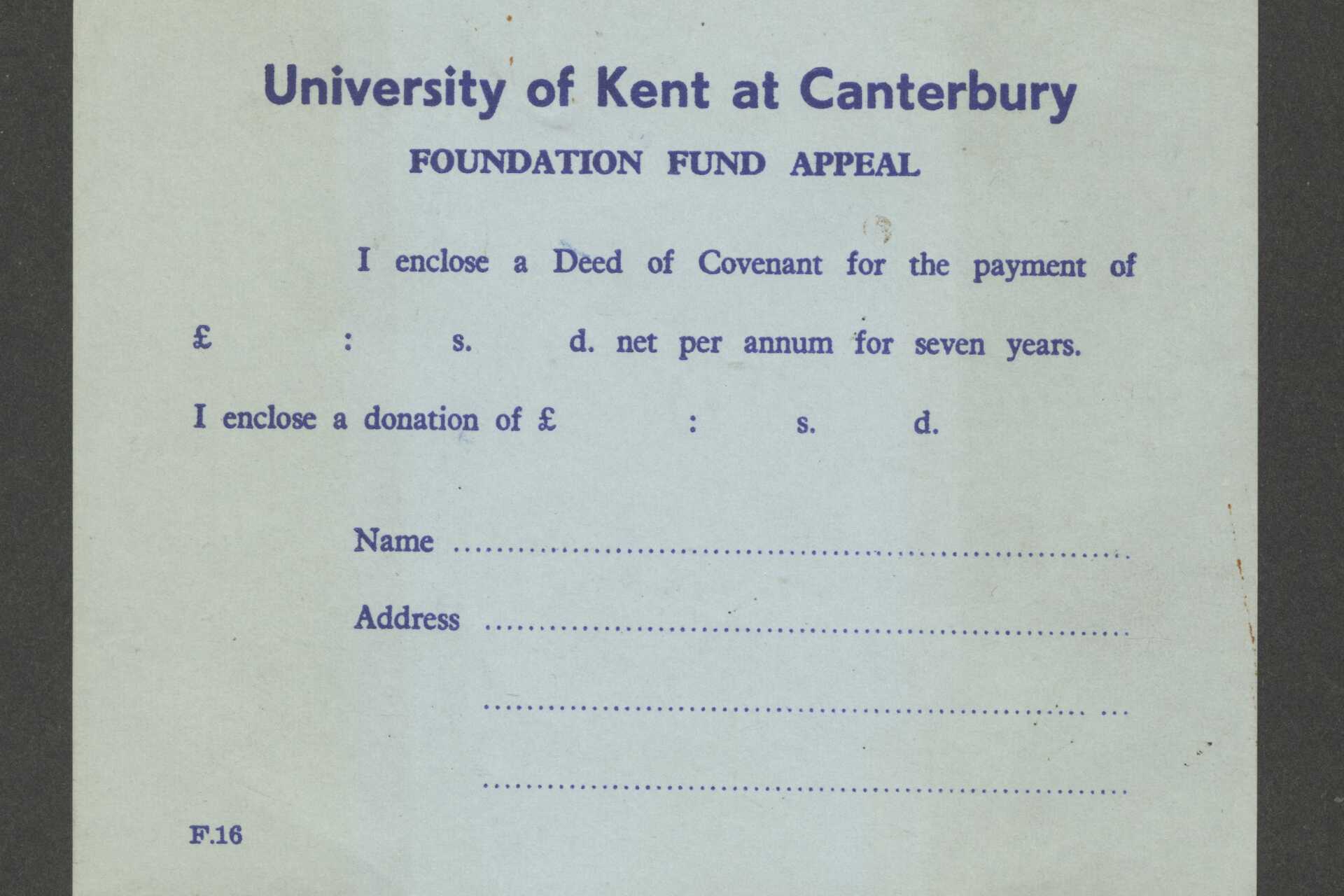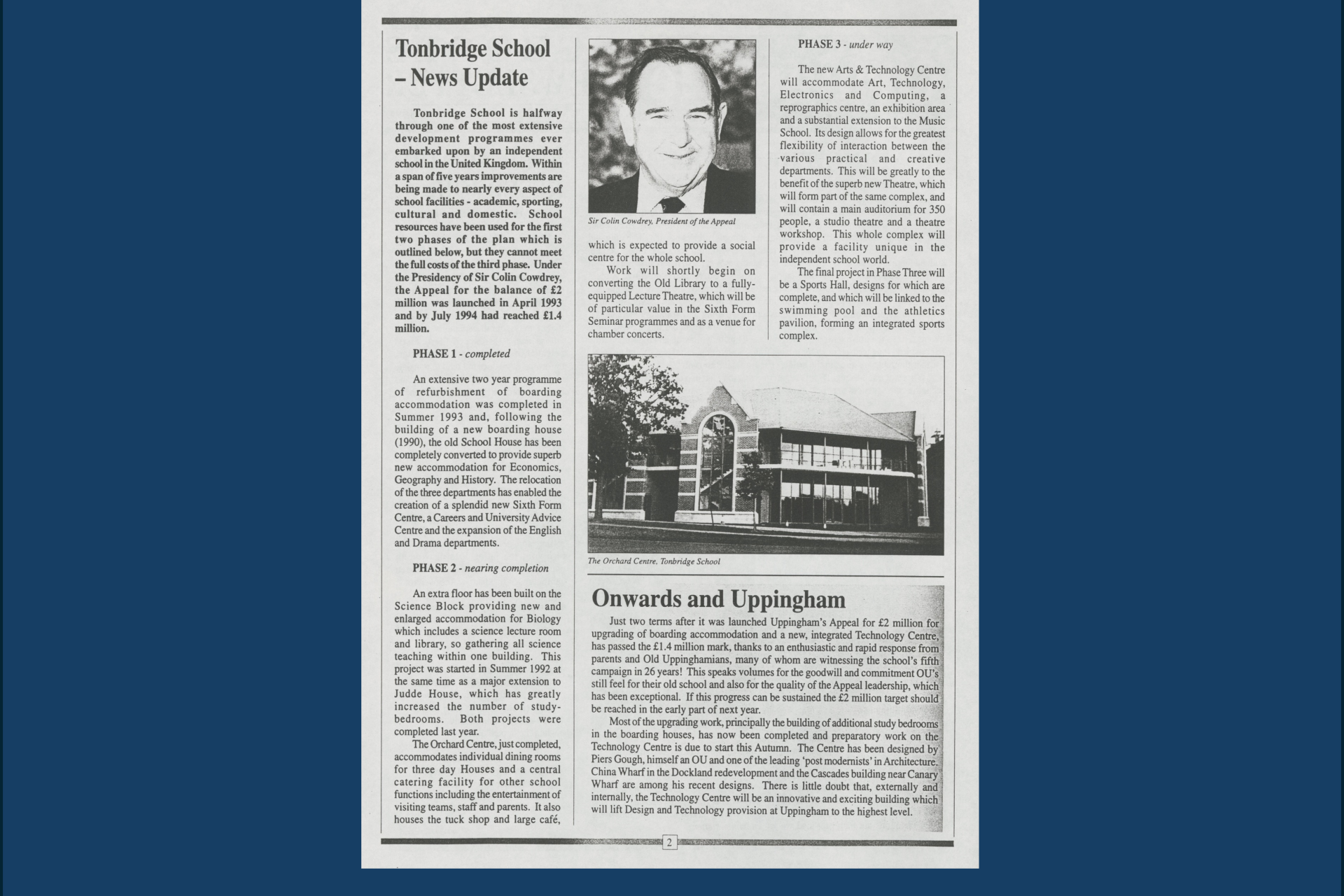Fundraising in Education
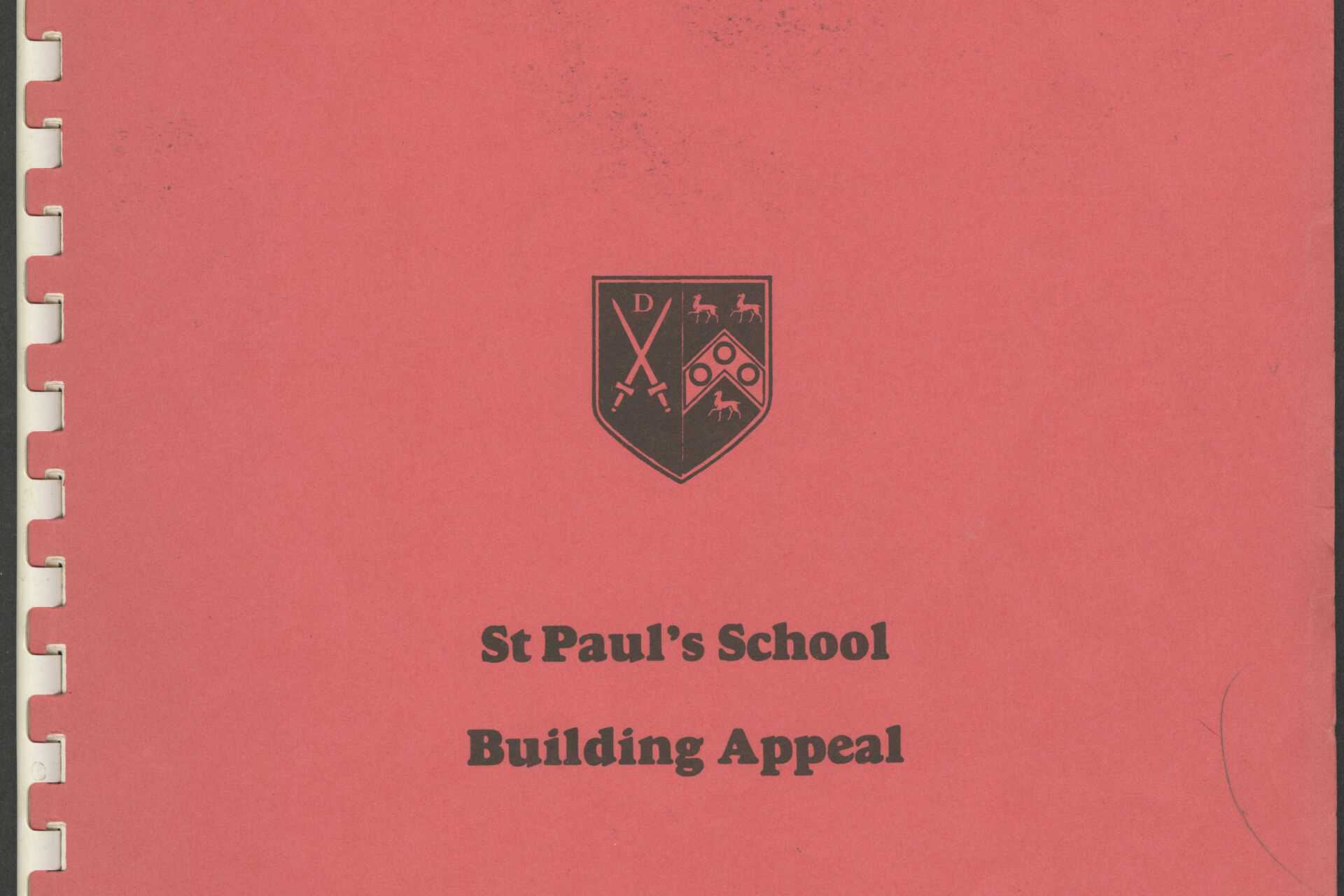
Craigmyle advised a variety of schools and universities in fundraising techniques, and managing appeals. Explore some of the stories of these organisations and the appeals and campaigns managed by Craigmyle. Plus some insight into the University of Kent's Foundation Appeal.
Education
Independent Schools
From the beginning of the company in 1959, Craigmyle had a focus on fundraising for independent schools.
Independent schools (private schools) charge fees to attend instead of being funded by the Government.
The funding needs of independent schools was impacted by changes in Government policy relating to the education system in the UK. This included the expansion of comprehensive education, and the changes to grants given to independent schools and grammar schools to provide places to pupils from lower income families.
The Craigmyle archive includes newsletters, publications, papers and correspondence between Craigmyle and schools clients. Client papers often include contracts and agreements, fundraising proposals, reports and publicity/appeals material.
There is usually a 'Terminal' report, or 'End of Service' report, from Craigmyle to the client summarising the progress, success and challenges of a campaign, alongside marketing and appeals brochures designed for campaigns.

Decades in schools fundraising
1950s and 1960s
Independent schools invested in their facilities and the standard of education provision to attract pupils who could potentially seek education in non-fee-paying schools elsewhere.
Less support was coming from rich landed classes leading to a shift in focus to current parents and former pupils – called alumni.
Craigmyle supported schools with long fundraising campaigns where a ‘Resident Campaign Director’ was embedded into the school throughout for campaigns focussed on capital projects such as buildings/facilities.
1970s
Direct grants for pupils from the government were abolished, leading to shorter school campaigns and more funding needed for bursaries to enable lower income pupils to attend
Support from fundraisers was also required for schools transitioning from being semi-grant funded to being fully independent.
1980s
Assisted Places Scheme was re-introduced by Government, so fundraising returned to focus on capital campaigns
1990s
Assisted Places Scheme abolished in 1997 meaning that fundraising for bursaries began to increase again
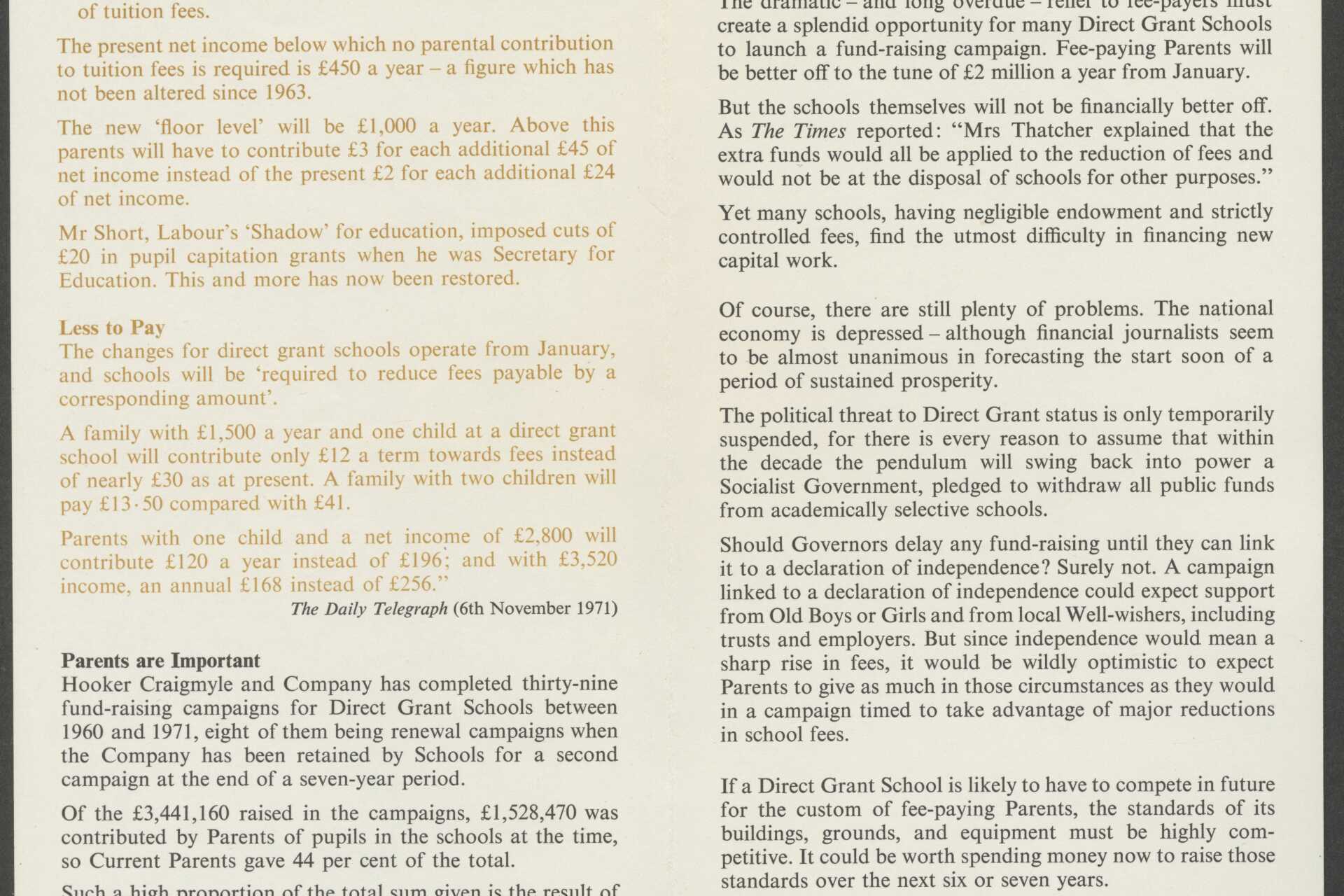
Schools Publications Series
In the 1960s and 1970s, Craigmyle wrote several small publications about fundraising practice to advise new and existing clients.
This is one example – ‘Good News for Direct Grant Schools’ (1971).
UKPA/CRAI (uncatalogued publications)
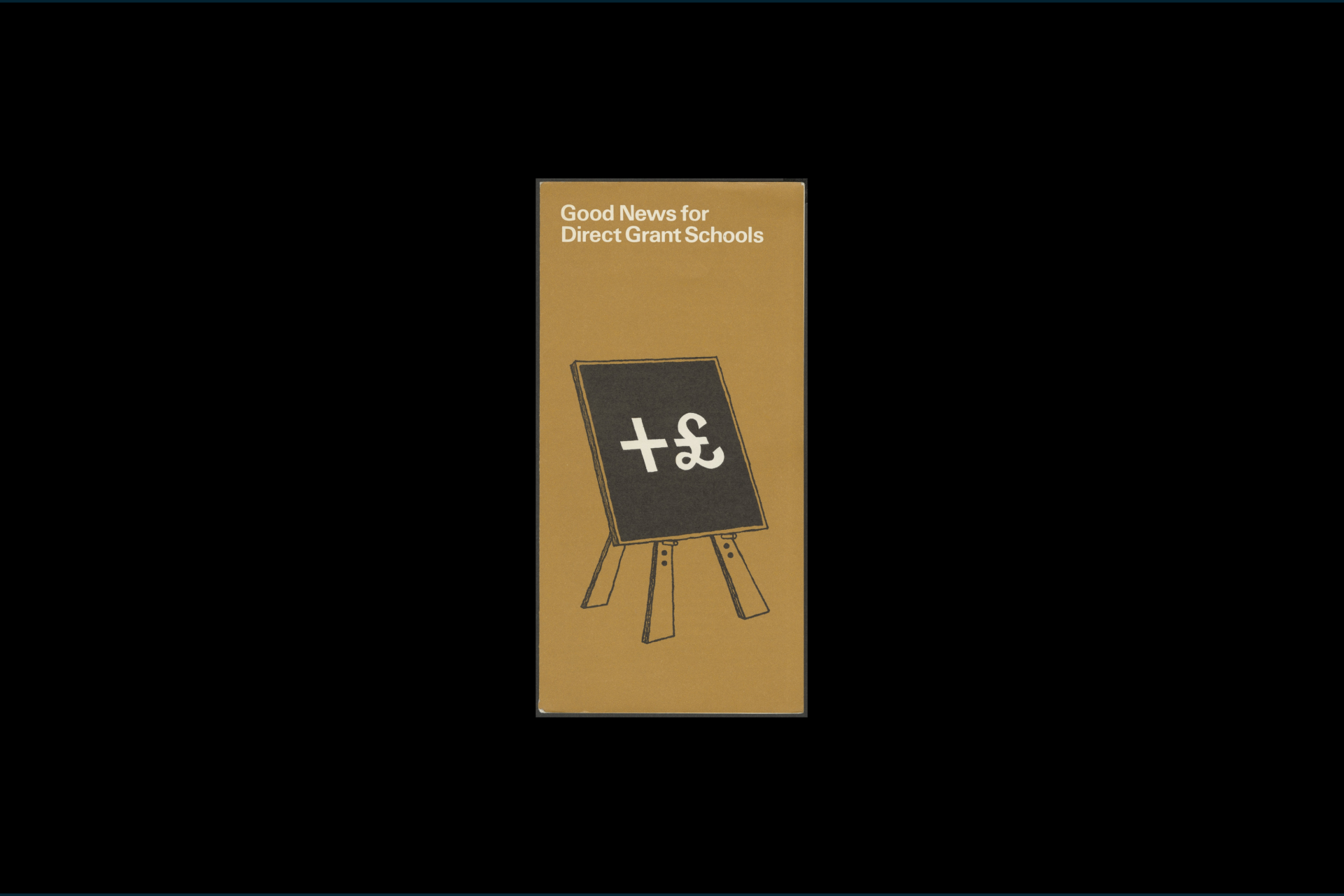
St Paul's School
St Paul's School was one of Craigmyle's earliest clients. A campaign at St Paul's School started in 1966 and aimed to raise £500,000 to build a new school at Barnes.
This page of the End of Service report provides information on the public launch.
UKPA/CRAI/1/10/45
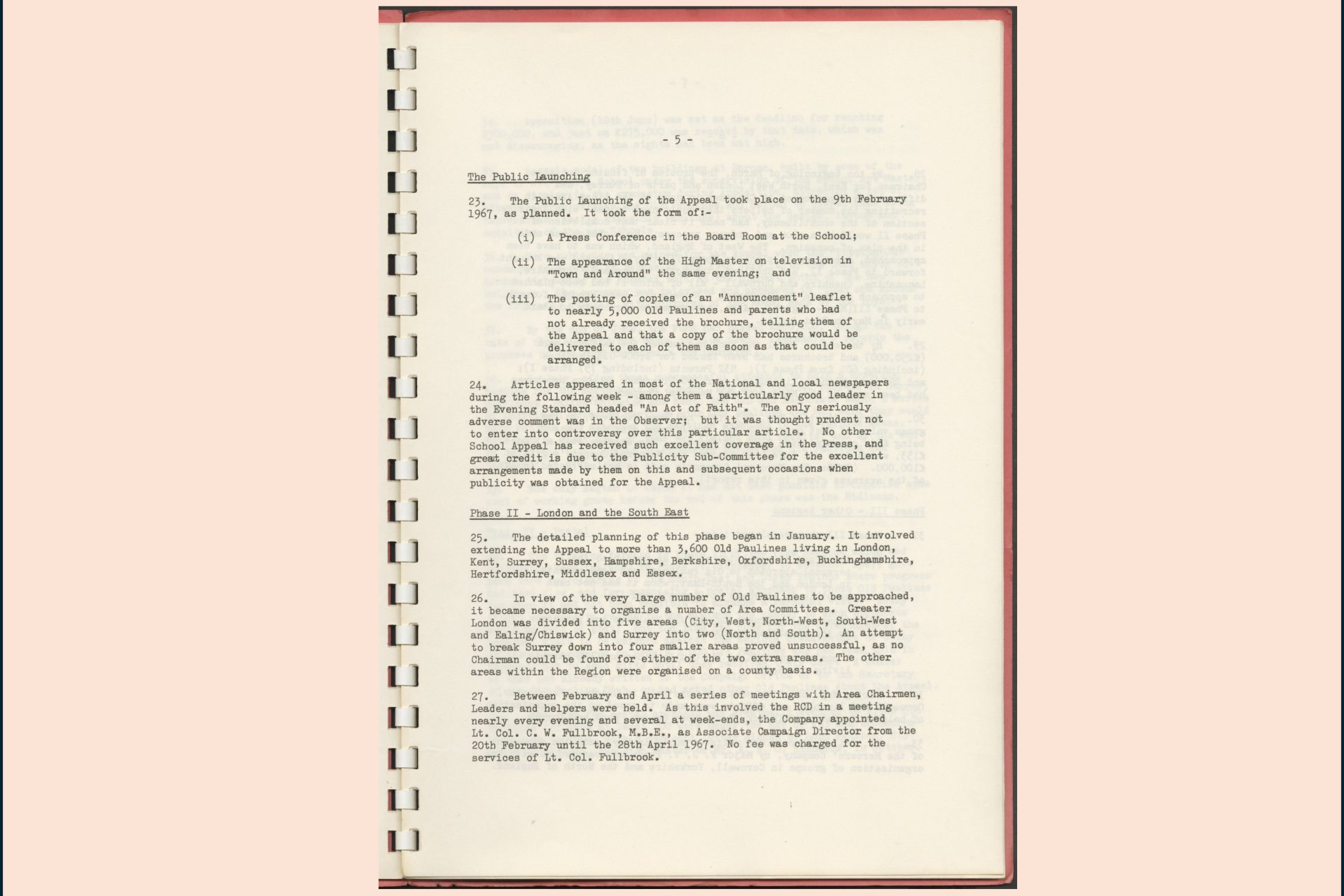
Manchester Grammar School
Manchester Grammar School, founded in 1515, became fully independent in 1976.
In 1997 after the abolition of the Assisted Places Scheme, MGS opened a Bursary Appeal aiming to raise £10 million to support free or subsidised places at the school.
UKPA/CRAI/2/7/4
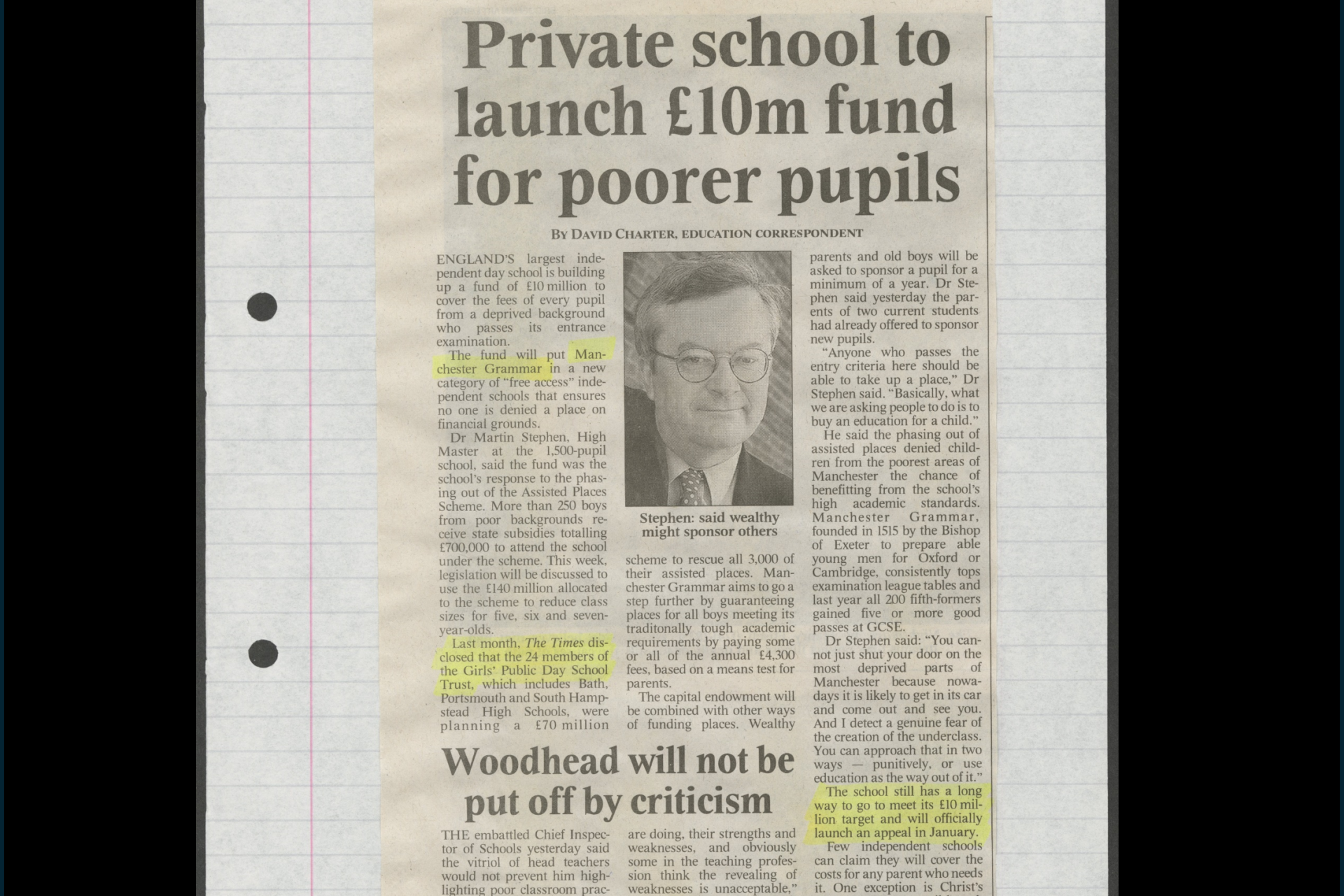
Fundraising in Universities
Fundraising in the higher education sector is a fast-developing area, accelerated by changes in Government funding provision. While there have always been large benefactor endowments at some older universities, in general, universities often relied on public/Government funding until the 1980s and 1990s when this became more restricted and the need for external fundraising grew.
Craigmyle became involved in higher education fundraising during the period of creation of new ‘plateglass’ universities in the 1960s. The new universities were running ‘Foundation Appeals’ which tended to focus on capital fundraising to raise money for buildings including student halls, sports facilities and cultural venues.
The first university supported by Craigmyle was the University of Essex in relating to it’s Foundation Appeal in 1963, raising over £1 million. They also worked on the foundation campaigns for the University of Lancaster and the University of Stirling.
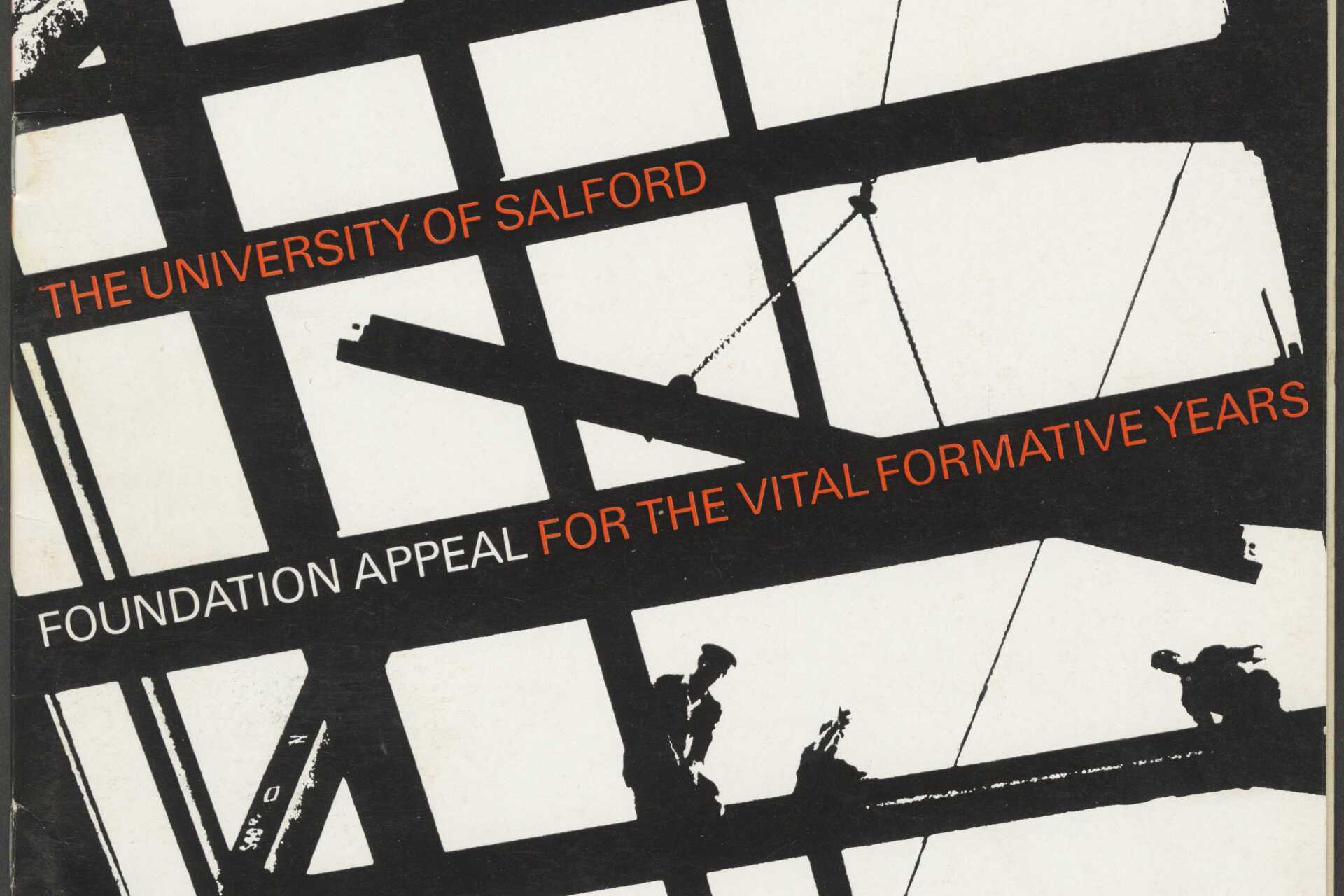
Exeter University
A Fundraising Survey was carried out by Craigmyle for Exeter University in 1963, producing this report.
The report covers a variety of types of potential fundraising activity that the University should consider, including fundraising from existing staff.
It refers to a similar campaign at Bristol University where over 200 staff donated a day’s pay annually using a Deed of Covenant for a period of 7 years.
Reference: UKPA/CRAI/1/4 (Exeter University)
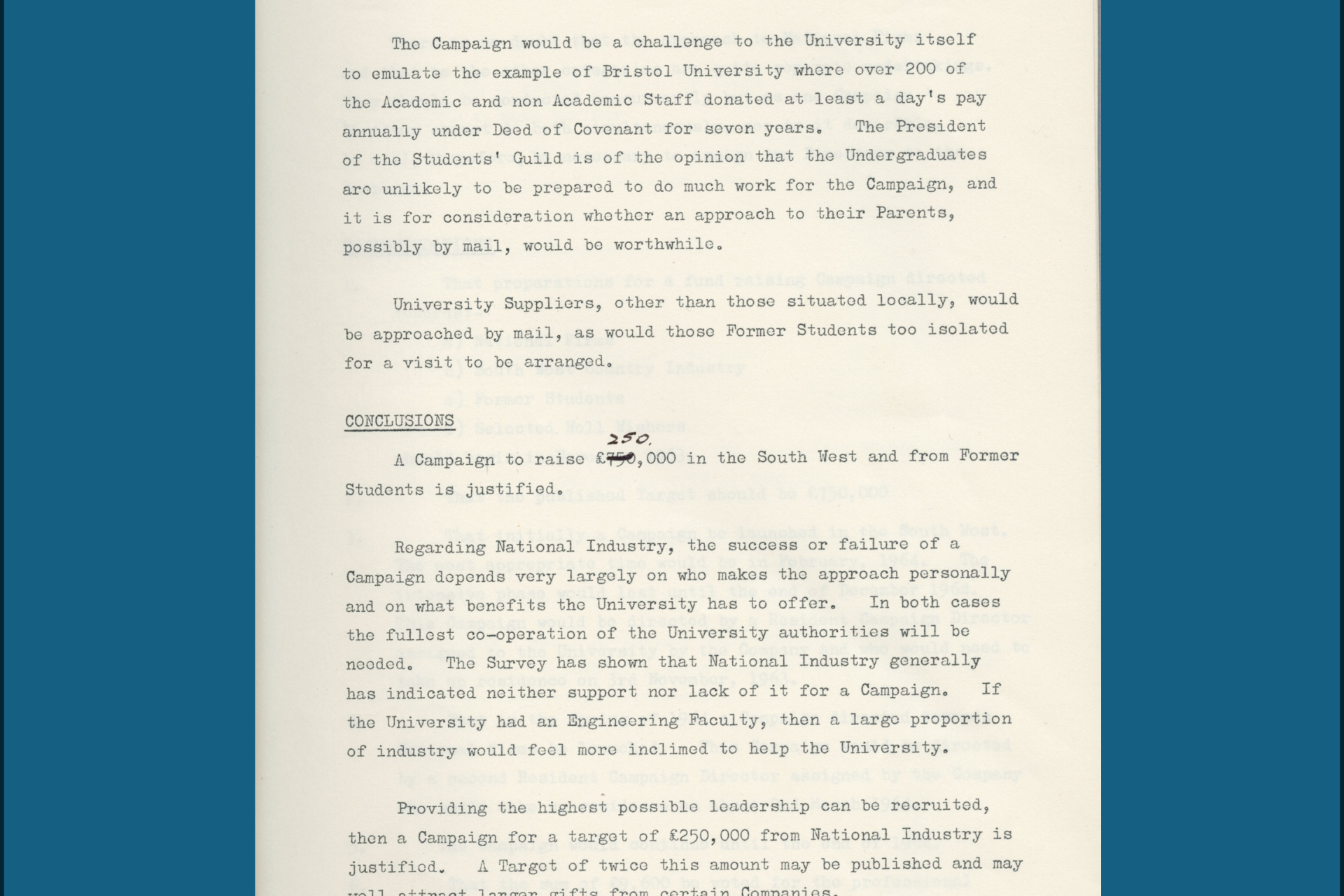
Terminal Reports
At the end of a contract with a client, Craigmyle produced a ‘Terminal Report’ with a summary of what had taken place during the consultancy period on an appeal, how successful it was, and where there were issues or difficulties. These are an interesting resource giving an overview of many different campaigns including how much money was raised through different types of campaigns, and whether different approaches were successful or not.
This example terminal report is from Craigmyle’s work with Christ's College, Cambridge in April 1967.
Reference: UKPA/CRAI/3/4
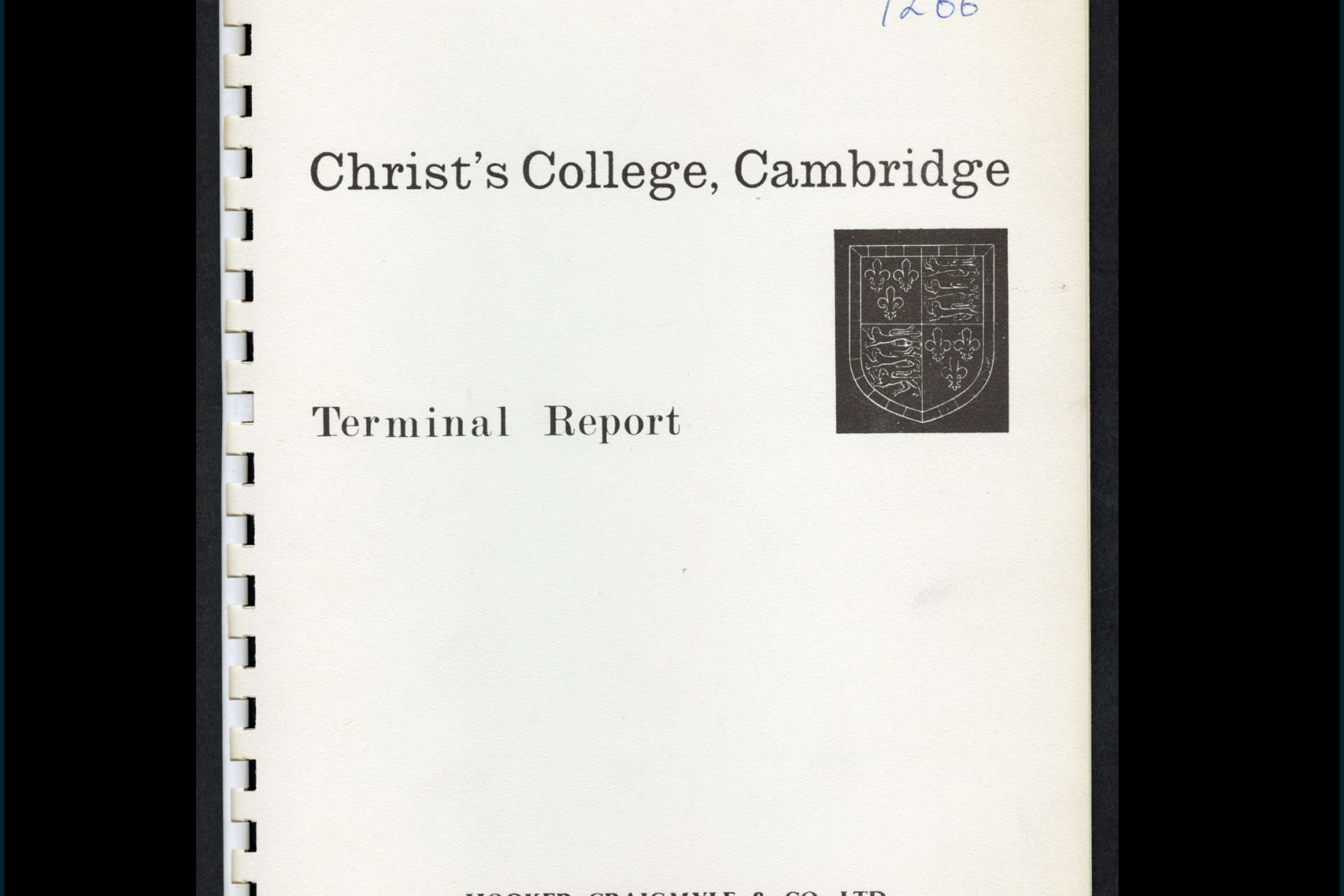
University of Kent Foundation Appeal
Fundraising at the University of Kent began even before the University received its Royal Charter in 1965.
Raising funds for a new University in Kent began in 1960, where the first efforts were directed at local industry and commerce.
An ‘Interim Committee’ was created in 1962 to continue the fundraising, and a decision was made to do this without contracting professional fundraising support.
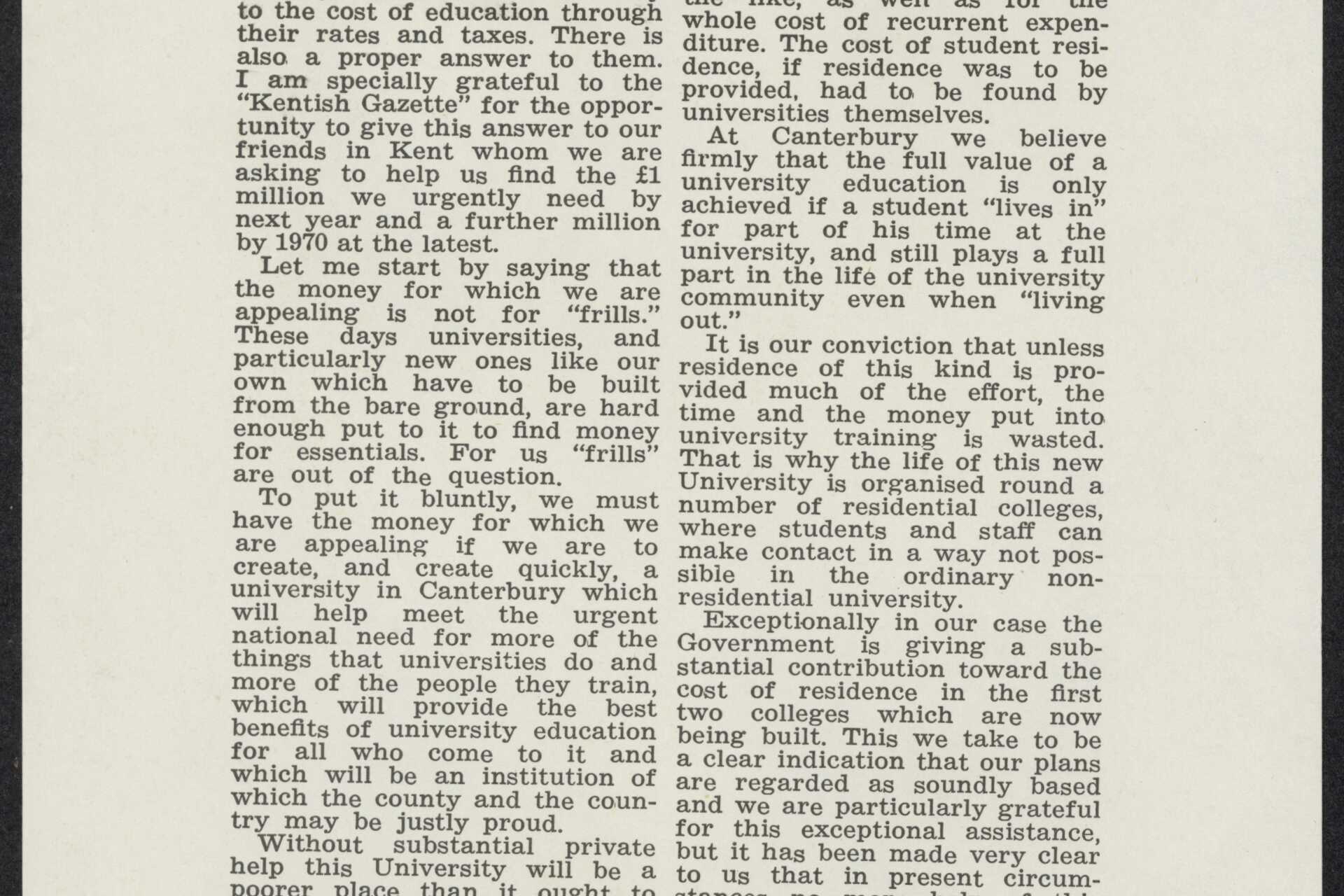
Use of professional advisors
Minutes of the Appeal Sub-Committee recording where the University were considering using a professional fundraising consultant to support the Foundation Appeal.
Hooker Craigmyle were interviewed, but the University decided to proceed without support.
UKA/FDN/3/1/1
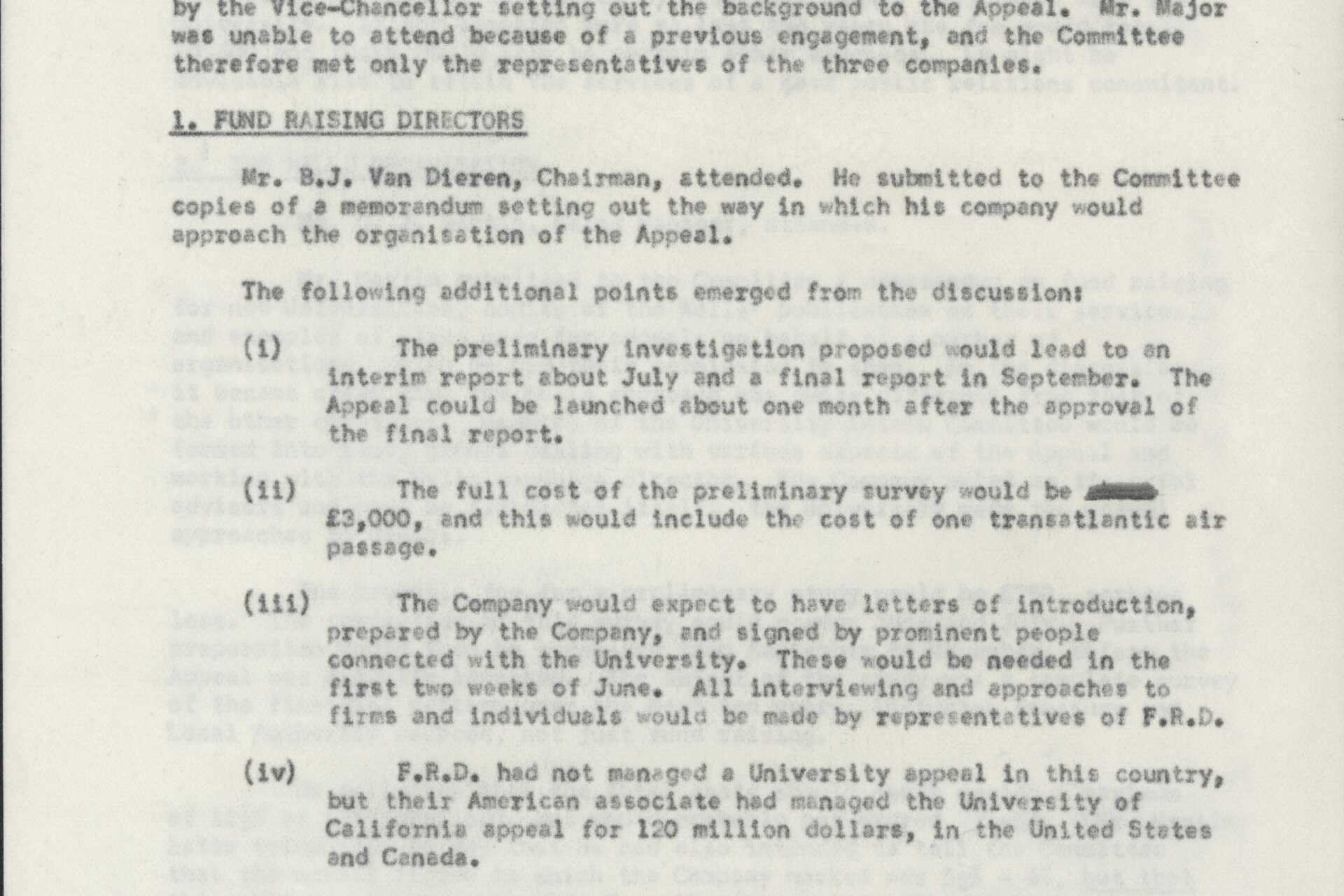
Foundation Appeal Brochure
This appeal brochure was published as part of the public appeal phase of the Foundation appeal. The public appeal was launched on the 11th June 1965 with local press coverage and a documentary.
UKA/FDN/3/2/5/6
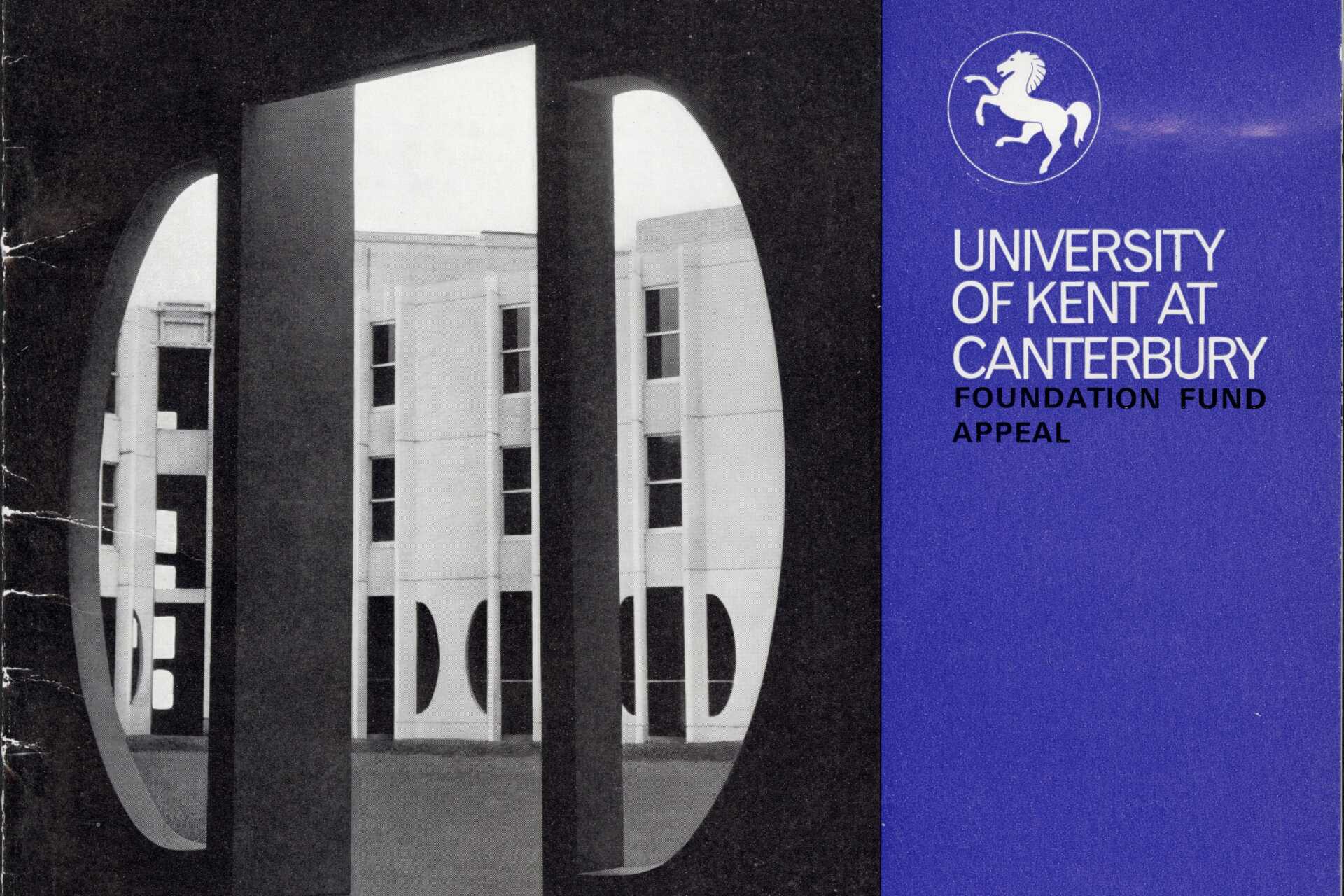
Foundation Appeal Leaflet
This leaflet was published in 1965 after the building of Eliot College and the science building (now Marlowe) and encourage further donations to buildings at the University.
UKA/FDN/3/2/5/7
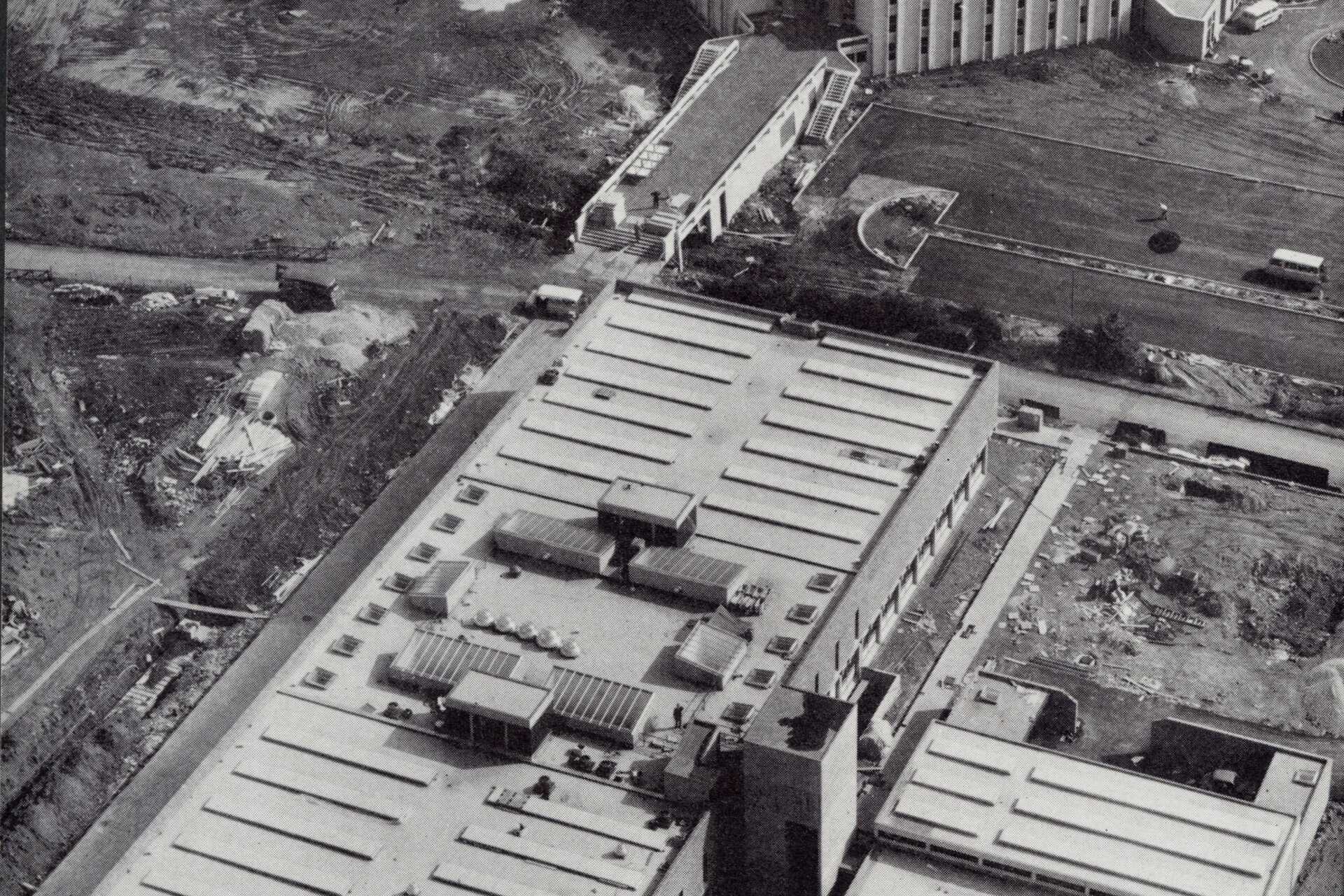
Deed of Covenant Donation Slip
This donation slip for a Deed of Covenant was part of the 1965 public appeal.
This was a popular fundraising mechanism in the 1950s to 1990s as it guaranteed a certain amount of income for a substantial period of time.
UKA/FDN/3/2/5/12
